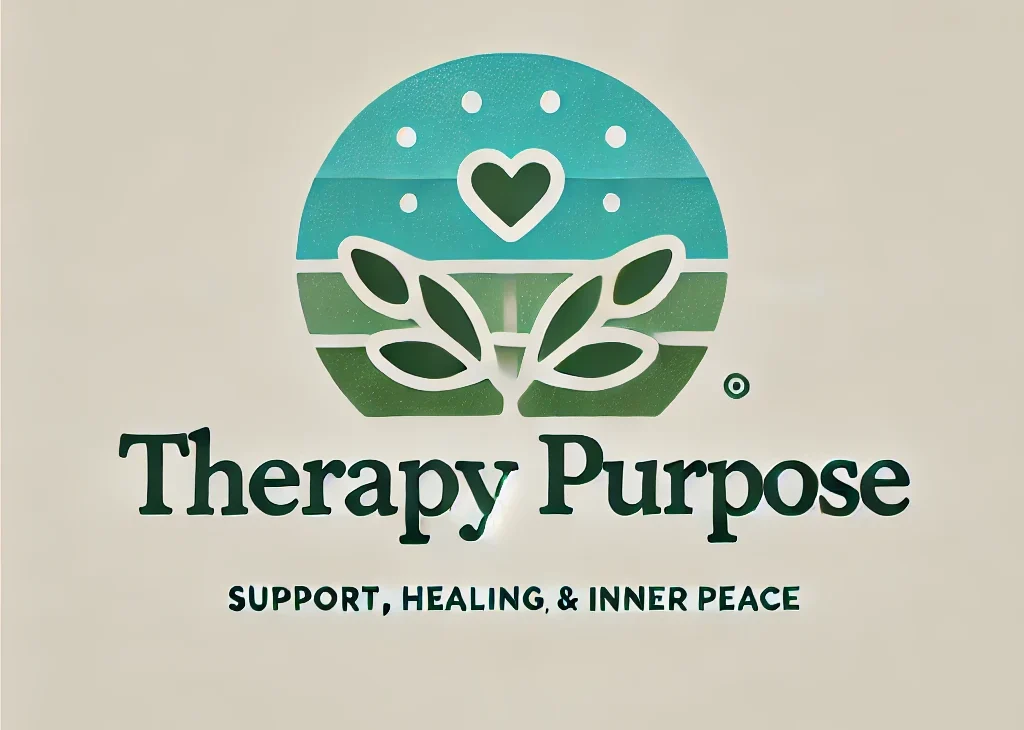Children’s Therapy Solutions: play a crucial role in fostering emotional well-being and supporting healthy development in children. Early intervention can significantly impact a child’s future, equipping them with essential tools to navigate life’s challenges. Various therapy methods, such as cognitive behavioral therapy and play therapy, cater to different needs, ensuring that each child receives personalized care. Moreover, involving families in the therapeutic process enhances the effectiveness of these solutions, promoting a supportive environment where children can thrive. Understanding these approaches empowers parents and caregivers to make informed decisions about their child’s emotional and developmental health.
Understanding Children’s Therapy Solutions:
Children’s Therapy Solutions: encompass a variety of therapeutic approaches designed to support the developmental and emotional needs of children. These methods aim to foster resilience, enhance coping skills, and address behavioral challenges, creating a nurturing environment for growth.
Key aspects of Children’s Therapy Solutions: include:
- Personalized Approaches: Each child is unique; therapists tailor interventions based on individual needs and circumstances.
- Multidisciplinary Techniques: Many professionals collaborate, such as psychologists, social workers, and occupational therapists, to provide holistic support.
- Focus on Development: Therapy addresses not just emotional issues but also cognitive and social development, fostering well-rounded growth.
- Family Involvement: Engaging families in therapy helps create supportive home environments essential for lasting change.
Understanding and utilizing Children’s Therapy Solutions: early can significantly impact a child’s ability to navigate life’s challenges. By promoting effective communication and support, these solutions empower children to thrive emotionally and socially.
Importance of Early Intervention
Early intervention plays a crucial role in addressing emotional and behavioral challenges in children. By identifying and addressing issues at a young age, parents and caregivers can significantly improve a child’s developmental trajectory. Here’s why early intervention is vital within Children’s Therapy Solutions:
- Enhances Development: Early therapy can boost cognitive, emotional, and social skills, allowing children to thrive and reach their full potential.
- Reduces Future Challenges: Addressing problems early helps mitigate more severe issues, preventing long-term mental health disorders.
- Builds Relationships: Early intervention fosters better parent-child relationships, equipping families with tools to navigate challenges together.
Early Intervention Impact Comparison
| Aspect | With Early Intervention | Without Early Intervention |
|---|---|---|
| Developmental Gains | High | Limited |
| Emotional Regulation | Improved | Poor |
| Family Dynamics | Strengthened | Strained |
Ultimately, investing in Children’s Therapy Solutions: early on creates a solid foundation for children to develop resilience and emotional regulation, leading to healthier future outcomes.
Types of Therapy Methods for Children
When exploring Children’s Therapy Solutions:, it’s essential to understand the various types of therapy methods available. Each approach caters to unique needs and can significantly impact a child’s development. Here’s a breakdown of the most common types:
Cognitive Behavioral Therapy (CBT): Focuses on changing negative thought patterns and behaviors through structured sessions.
- Ideal for: Anxiety, depression, and behavioral issues.
Play Therapy: Utilizes play to help children express feelings and resolve emotional conflicts.
- Ideal for: Younger children who may struggle with verbal communication.
Art Therapy: Encourages creativity as a means of expression, allowing children to explore emotions visually.
- Ideal for: Children experiencing trauma or those with anxiety.
Family Therapy: Involves family members in sessions to improve communication and resolve issues.
- Ideal for: Problems affecting the whole family system.
Group Therapy: Provides support and social skills development in a group setting.
- Ideal for: Children dealing with similar issues and looking for guidance in a community.
Each of these Children’s Therapy Solutions: offers unique benefits, and selecting the right method is critical for effective intervention and support for emotional growth.
Cognitive Behavioral Therapy Techniques
Cognitive Behavioral Therapy (CBT) offers impactful Children’s Therapy Solutions: focusing on the relationship between thoughts, feelings, and behaviors. This evidence-based approach equips children with tools to manage their emotional challenges effectively. Here are some key techniques used in CBT:
- Cognitive Restructuring: Helps children identify and challenge negative thought patterns, fostering a more positive outlook.
- Behavioral Activation: Encourages engagement in enjoyable activities, assisting children in overcoming avoidance behaviors.
- Exposure Therapy: Gradually exposes children to fears in a controlled environment, building confidence and reducing anxiety over time.
- Problem-Solving Skills: Teaches children effective strategies to face challenges, enhancing their decision-making abilities.
Benefits of CBT Techniques:
- Promotes emotional regulation
- Improves self-esteem
- Encourages adaptive coping strategies
By incorporating these CBT techniques, Children’s Therapy Solutions: can address issues such as anxiety, depression, and behavioral disorders, ultimately equipping children with lifelong skills for emotional resilience.
Play Therapy and Its Benefits
Play therapy is a dynamic therapeutic approach, specifically designed for children, that utilizes their natural instincts to explore, communicate, and heal. Through play, children express feelings and thoughts that might be difficult to verbalize. Here are some key benefits of play therapy:
- Expression of Emotions: Children can portray their inner experiences, leading to better emotional awareness.
- Safe Environment: Play offers a safe space for children to process various traumatic experiences.
- Skill Development: Kids enhance problem-solving and social skills during play sessions.
- Improved Communication: Play therapy allows therapists to connect and foster communication, breaking down barriers often faced in traditional therapy.
| Benefits | Description |
|---|---|
| Emotional expression | Helps children articulate feelings through play |
| Trauma resolution | Provides a constructive outlet for past traumas |
| Social skills building | Encourages collaboration and teamwork with peers |
| Cognitive enhancement | Stimulates problem-solving and critical thinking |
In summary, Children’s Therapy Solutions: through play therapy can effectively support emotional and developmental growth. By engaging children in this creative process, professionals unlock the potential for healing and resilience.
Family Therapy Involvement
Family involvement plays a critical role in Children’s Therapy Solutions:. Integrating family dynamics into therapy strengthens the support system around a child, fostering emotional and psychological growth. Here are some key benefits of family therapy:
Enhanced Communication: Family therapy encourages open dialogue among family members, helping children express their feelings in a safe environment.
Improved Relationships: Involved families typically experience better relationships, which are essential for a child’s emotional health.
Coping Skills Development: Families learn strategies together to cope with difficulties as a unit, promoting resilience.
Consistency in Approach: Unified strategies from both therapists and family members ensure consistent support in addressing behavioral issues.
Comparison of Types of Family Therapy Involvement
| Family Therapy Type | Focus | Benefits |
|---|---|---|
| Multisystemic Therapy | Systematic approach to behavior | Addresses broader environmental factors |
| Narrative Therapy | Storytelling to reshape identity | Helps children retell their experiences |
| Structural Family Therapy | Interactions and roles in family | Identifies unhealthy dynamics |
In conclusion, integrating family therapy into Children’s Therapy Solutions: leads to significant improvements in a child’s emotional and behavioral resilience.
Addressing Emotional and Behavioral Issues
When it comes to Children’s Therapy Solutions, addressing emotional and behavioral issues is crucial for a child’s overall development. Various methods can effectively support children in managing these challenges:
- Individual Therapy Sessions: These personalized sessions encourage children to express their emotions and develop coping mechanisms.
- Group Therapy: Sharing experiences with peers fosters understanding and reduces feelings of isolation.
- Behavioral Interventions: Techniques like positive reinforcement help modify undesired behaviors while promoting positive actions.
Comparison of Therapy Methods
| Therapy Type | Key Focus | Benefits |
|---|---|---|
| Individual Therapy | Emotional expression | Builds self-esteem, personal insights |
| Group Therapy | Peer interaction | Enhances social skills, reduces anxiety |
| Behavioral Interventions | Action-oriented | Encourages positive behavior, creates routines |
Incorporating these approaches into Children’s Therapy Solutions can lead to significant improvements in emotional regulation and behavior management. With early intervention and the right support, children can thrive, feeling secure and understood. By addressing these issues proactively, caregivers can help nurture resilience and emotional health in children.
Building Resilience in Children
Building resilience in children is crucial for their emotional and mental health. Resilience equips children to face challenges, adapt, and bounce back from setbacks. Here are key strategies to enhance resilience through Children’s Therapy Solutions:
Foster Strong Relationships: Encourage connections with supportive adults and peers. Positive relationships provide a safety net during tough times.
Encourage Problem-Solving Skills: Teach children to approach problems with a solution-focused mindset. Role-playing and collaborative games can strengthen these skills.
Promote Emotional Awareness: Help children identify and express their feelings. Use art or storytelling as tools for communication, making feelings tangible.
Set Realistic Goals: Assist children in setting achievable goals. Celebrate their successes, no matter how small, to build confidence.
Cultivate a Growth Mindset: Encourage children to view challenges as opportunities for growth rather than obstacles. This mindset fosters a love for learning and resilience.
By integrating these strategies into Children’s Therapy Solutions, parents and caregivers can help fortify their children’s ability to cope with life’s challenges effectively.
Creating a Supportive Environment
Establishing a nurturing atmosphere plays a crucial role in the effectiveness of Children’s Therapy Solutions:. A supportive environment can significantly enhance a child’s emotional and psychological development. Here’s how you can cultivate this environment:
Encourage Open Communication: Promote discussions about feelings and thoughts. This transparency helps children express themselves freely.
Be Consistent: Provide a predictable routine. Consistency in daily activities fosters a sense of security.
Create a Safe Space: Designate a comfortable area where the child can feel relaxed and express themselves without judgment.
Focus on Positivity: Reinforce positive behavior with praise and encouragement, helping boost self-esteem.
Involve the Family: Family support is vital. Engage with family therapy options as part of Children’s Therapy Solutions: to strengthen relationships and understanding.
Limit Distractions: Create a quiet, distraction-free area for therapy sessions or focused activities.
By prioritizing these elements, parents and caregivers can significantly enhance the outcomes of Children’s Therapy Solutions:. A supportive environment lays the foundation for children to thrive emotionally and behaviorally.
Resources for Parents and Caregivers
Parents and caregivers play a crucial role in implementing Children’s Therapy Solutions: effectively. To support this effort, numerous resources are available that can enrich knowledge and provide guidance:
Books & Literature:
- "The Whole-Brain Child" by Daniel J. Siegel – Offers insights into child development and emotional support.
- "What to Expect the First Year" by Heidi Murkoff – Covers developmental milestones and therapeutic strategies.
Online Platforms:
- Parenting Blogs and Forums – Ideal for sharing experiences and finding practical tips.
- Webinars and Workshops – Many organizations host virtual sessions focusing on children’s mental health and therapeutic techniques.
Local Support Groups:
- Meet with other parents or caregivers facing similar challenges to exchange advice and encouragement.
Professional Organizations:
- Organizations like the American Psychological Association provide resources and tools specifically designed for Children’s Therapy Solutions:.
By utilizing these resources, parents and caregivers can better understand their child’s needs and discover effective Children’s Therapy Solutions: to foster emotional and developmental growth.


